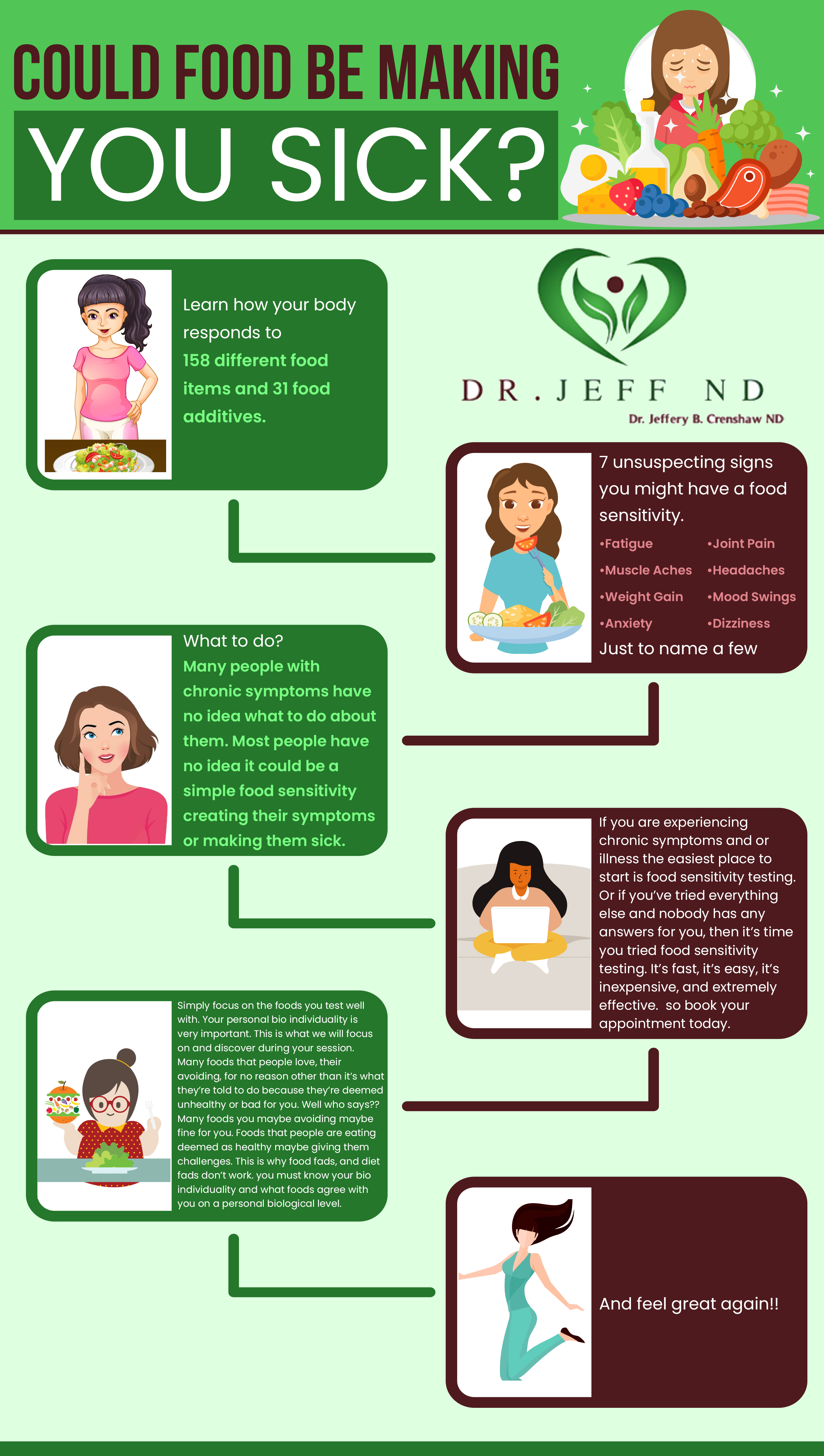 Too much of one food
Too much of one food
- You can become sensitive to any food you eat too often. Many people eat a relatively small number of foods several times a day. For example, wheat, a common food sensitivity, is found in breakfast cereals, the bread used to make a sandwich at lunchtime, and the spaghetti eaten at dinnertime.
Leaky gut syndrome.
- The digestive tract plays a vital role in preventing illness and disease by providing an impenetrable barrier. When the lining of the gut is inflamed from a food sensitivity, small openings develop between the tightly woven cells making up the gut walls. This is called “leaky gut syndrome”. With leaky gut syndrome, partially digested dietary protein can cross the intestinal barrier into the bloodstream. These large protein molecules can cause an allergic response, producing symptoms directly in the intestines or throughout the body. Additionally, hundreds of yeast and bacteria are released from the gut into the bloodstream where they set up infection anywhere, including muscles, joints, bones, teeth roots, coronary arteries, or even the brain. The early introduction of solid foods to infants before six months of age contributes to leaky gut syndrome and subsequent food allergies and sensitivities.
Deficiency of Probiotics
- One of the causes of leaky gut is an absence of probiotics or ‘friendly’ bacteria in the intestines. The friendly bacteria help maintain the health of the intestines by producing fuel for intestinal cells and killing bad bacteria. Parasitic infections, treatment with antibiotics and other toxic pharmaceuticals, stress, poor diet (sugar and flour), smoking, alcohol, excessive hygiene, candida overgrowth and bottle-feeding your baby can disrupt the proper balance of friendly bacteria to bad bacteria.
Overworked immune system
- Constant stress, exposure to air and water pollution, and pesticides and chemicals in our food puts a strain on our immune system, making it less able to respond appropriately to the antigens in food.
Genetics
- Food allergies and intolerances seem to be hereditary. Research indicates that if both parents have allergies, their children have a sixty-seven percent chance of developing food allergies. When only one parent is allergic, the child has a 33% chance of developing food allergies. Specifically, a person may inherit a deficiency of an enzyme like lactase, the enzyme that digests dairy. With nightshade sensitivities, there are ten genetic variants for susceptibility, not all individuals are affected equally or at all. A similar case can be made for other food sensitivities. Genetic variations predict the severity of your sensitivity.
